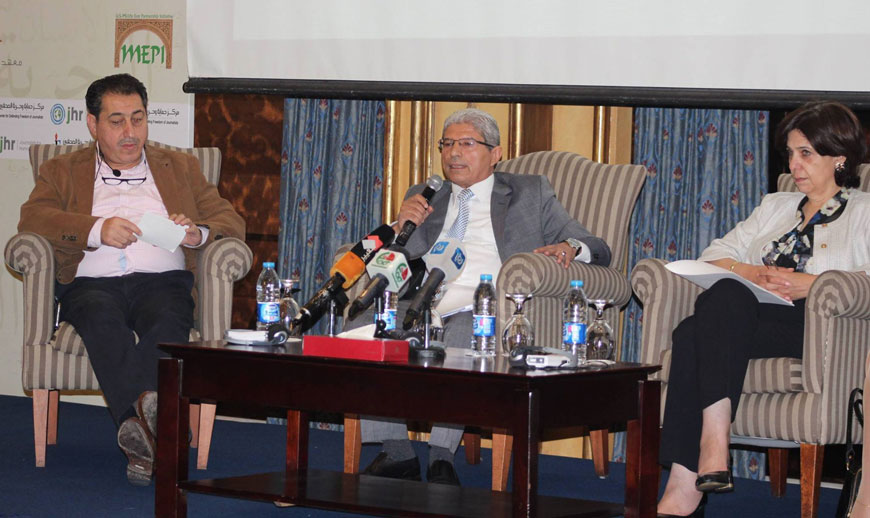AMMAN — With the government stressing that it is working to ease access to information, a watchdog said current efforts are insufficient, calling for practical steps to address this major problem facing media outlets.
Several amendments have been introduced to the Access to Information Law, which was endorsed in 2007, and are currently at the Lower House for discussion, Mohammad Abbadi, a commissioner at the Information Council (IC), whose creation was based on the law, said Saturday during the Human Rights Media Forum 2, held by the Centre for Defending the Freedom of Journalists (CDFJ).
The new amendments will shorten the period during which public agencies need to respond to a request seeking information from 30 to 15 days. In addition, head of the Jordan Press Association will be a member in the IC, Abbadi said.
The official added that circulars will soon be sent to all public agencies and ministries to ensure that they have the necessary forms for those seeking to use the law to acquire information.
The Access to Information Law aims to facilitate the public’s access to official documents, granting access to almost all types of information except those classified as “secret”, as per legislation on protecting state documents and secrets.
Those wishing to obtain information through this law must fill out a special form and wait for an official response.
“We will continue with our reform efforts,” Abbadi said, adding that the council received only 39 complaints of not getting information after requesting access since 2007.
Stressing that access to information is a basic human right that needs to be safeguarded, CDFJ President Nidal Mansour said current amendments are not enough.
“We need more amendments. We need to have more discussions on the changes before being endorsed by the Lower House,” Mansour added at the one-day forum.
“The problem is not with the law itself. It is also with the enforcement of the law… Many public agencies don’t know anything about the law… Many others don’t have the necessary forms that people can fill out to get information as stipulated by the law,” he said, adding that many public entities have not classified the information they possess as stipulated by the law.
The enforcement of the law is also crippled by another piece of legislation on safeguarding state documents and secrets, said Mansour.
He argued that Jordan’s efforts to implement recommendations by world countries related to freedom of the press are slow, calling for more effective measures in this regard.
In 2013, countries at the UN Universal Periodic Review of the country’s human rights record issued 18 such recommendations, of which the government accepted 15 and voiced reservations over three.
The government voiced reservations on a recommendation to take measures to enhance and support the freedom and independence of the media, especially electronic media, and to consider cancelling a provision requiring websites to register.
Some of the recommendations that the government accepted include cancelling or amending all articles in the Penal Code that impose “blatantly unfair” restrictions on freedom of expression, as well as amending the Press and Publications Law to ensure full protection for freedom of expression and to reduce restrictions imposed on publishing information on the Internet.
